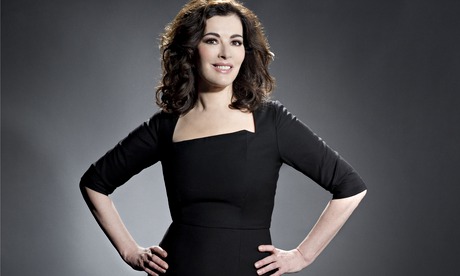
I never intended to be a food writer. But perhaps the truth is that everything in life that matters – in the professional arena as with affairs of the heart – cannot be planned. My first book How To Eat was published more than 16 years ago, and even as I was writing it, I had no clear idea of the form it would take. I loved food, and felt strongly that cooking (rather like child-rearing, with which I was also much taken up at the time) should not be the preserve of the expert, but restored to its place in the home. I am not a chef, nor even a trained cook, but as I feel I must remind people all too often: if you needed a professional qualification to cook, human beings would have fallen out of the evolutionary loop a long time ago.
In How To Eat I thought aloud about food, shared my enthusiasms and prejudices and tried to explain how and why I cook any one dish at any one time. It is an intensely personal book: any authentic collection of recipes is in part autobiography; and in my case, many of these recipes were a kind of memorial to the food cooked by my mother, Vanessa, and sister, Thomasina. Not that How To Eat is simply an act of remembrance. In some sense, it is a diary by stealth. The recipes chart my own life. How To Eat has a chapter on weaning and feeding infants and toddlers; now my books contain ideas for teen feasts.
How To Be a Domestic Goddess is really the story of my sudden conversion to baking. I had always thought there were cooks and bakers, and that I was firmly in the first camp. But in tackling some of the basics of bakery in How To Eat, I learnt otherwise. Now that Britain is convulsed by baking mania, it is hard to explain how unlikely a proposition a book about baking was way back in the year 2000. Forget the tiresomely controversial title for a minute, and concentrate on the subtitle: Baking and the Art of Comfort Cooking. When one cooks, say, a stew, it is quite easy to understand how the cubes of meat, the carrots and the leeks, the wine and stock, turn into the finished article. But the simple act of mixing eggs, sugar, butter, flour and seeing it turn into a cake seems somehow magical. (I like to think of baking as a mixture of chemistry and poetry.) All human beings have a deep-seated belief in, and need for, transformation, and I feel that baking appeals to that instinct, in a way that – at the risk of sounding naff – soothes the soul.
Nigella Summer started life as Forever Summer, and I am glad it is has shed its original title, for it always seemed to promise something impossible. And yet I do believe that the food one cooks can conjure up different places, different moods. For much of my life, I have been not so much an armchair traveller, but a kitchen tourist, and as we are all probably feeling after months of greyness and rain, there is a pleasure to be gained in conjuring up lightness and brightness in the kitchen.
Express came about completely by accident. I was planning an entirely different book, and then one day I happened to see my notepad, near the stove, with all the meals I'd been cooking for the children's tea, for supper and so on (I archive everything I cook, however haphazardly) and saw that there was the book, staring me in the face. I feel very strongly that however little time one might have to cook, it is important that taste is never compromised. I see every meal as an occasion of pleasure, and life doesn't have so many of those that we can afford to squander them. In focusing on the needs of the time-squeezed cook, Express is a kind of kitchen carpe diem. But then, all my books are.
I started by saying that I hadn't intended to become a food writer. But in writing about food I found my voice, and discovered that a recipe does more than instruct the reader, but is a way of addressing life, and celebrating it.

